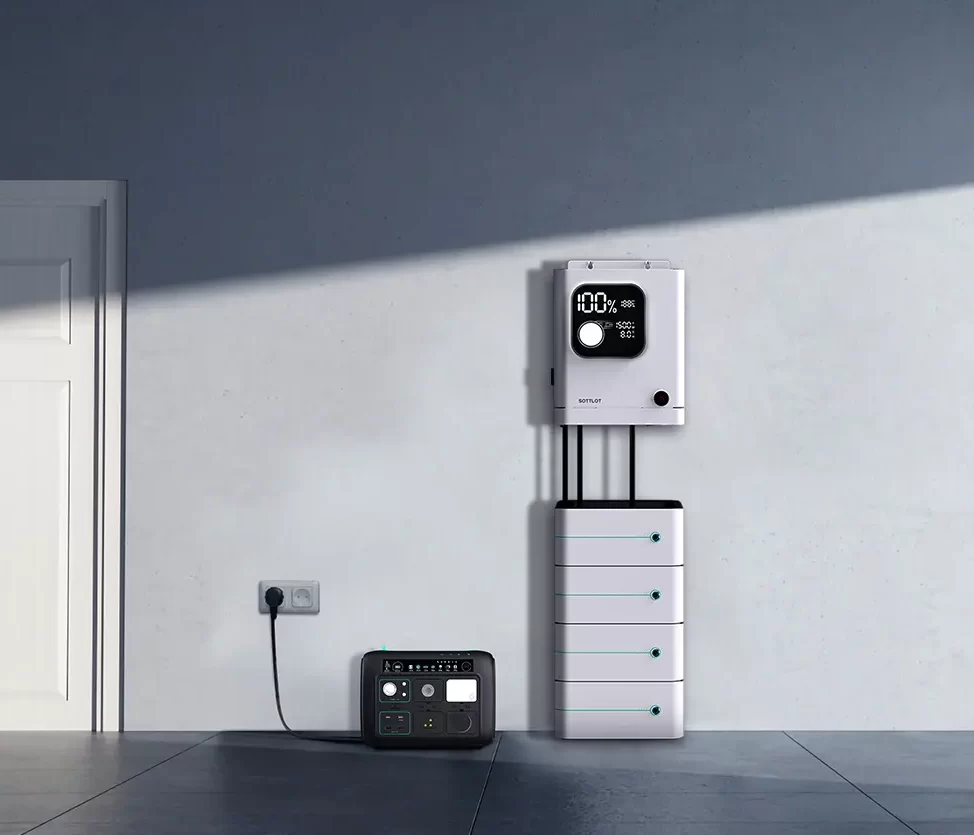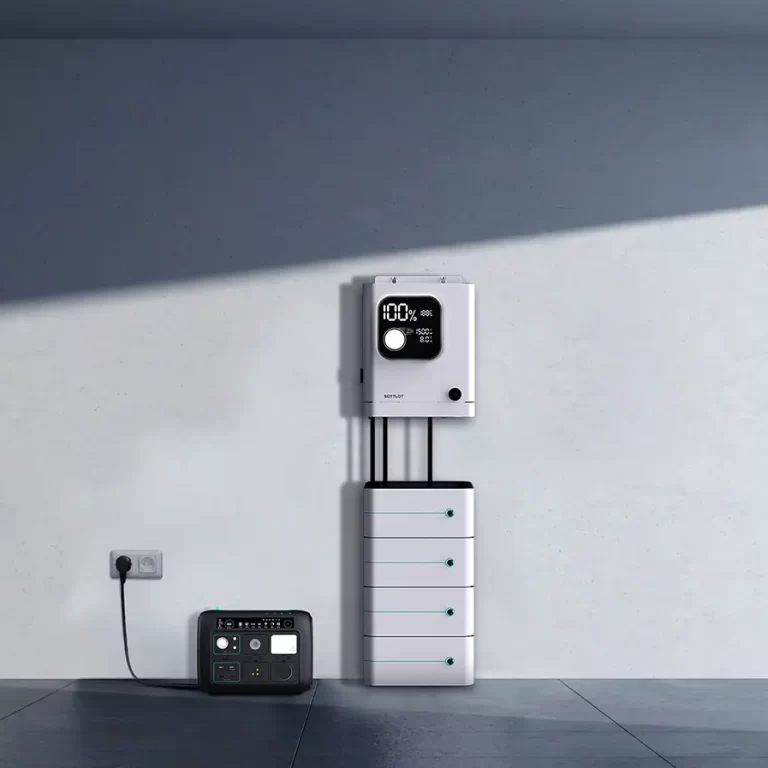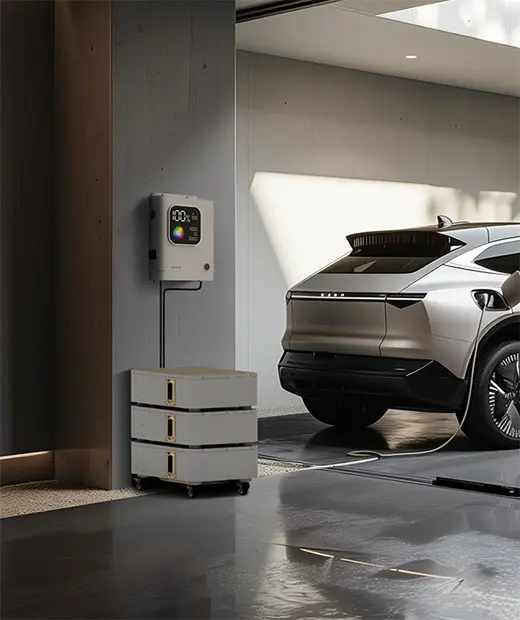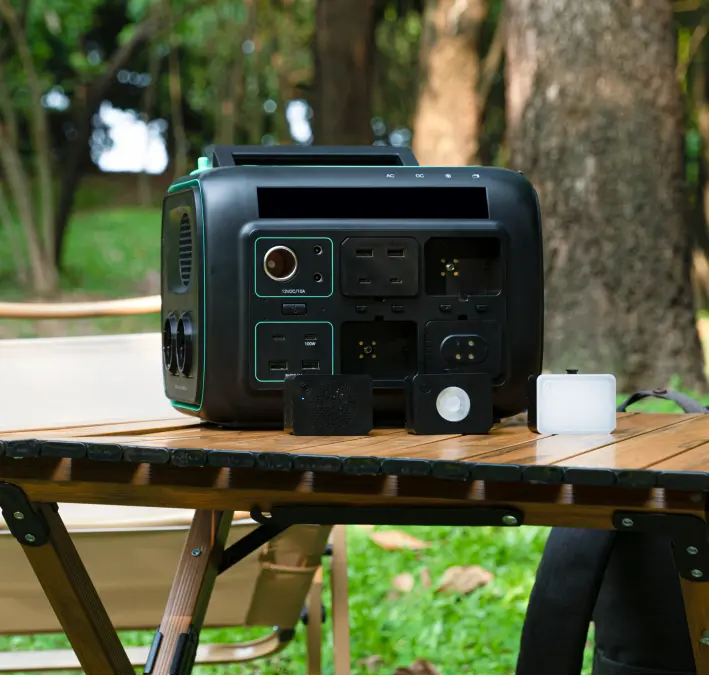With the continuous development of renewable energy, home energy storage systems have gradually attracted people’s attention. As an important part of the home energy storage system, the matching problem between the inverter and the energy storage system directly affects the performance and efficiency of the entire system.

1. Power matching of inverter
The power of the inverter should match the capacity of the home energy storage system. If the power of the inverter is too small, the capacity of the energy storage system cannot be fully utilized, resulting in a waste of energy; and if the power of the inverter is too large, it may overload the energy storage system, affecting its lifespan and safety. Therefore, when selecting an inverter, it is necessary to reasonably select the power of the inverter based on the actual capacity and load requirements of the home energy storage system.
2. Inverter voltage and frequency
The output voltage and frequency of the inverter should match the requirements of household electrical equipment. Generally speaking, the voltage of household electrical equipment is 220V or 110V, and the frequency is 50Hz or 60Hz. Therefore, the output voltage and frequency of the inverter should be within this range to ensure the normal operation of household electrical equipment. At the same time, the voltage and frequency stability of the inverter under different load conditions also need to be considered to avoid damage to electrical equipment.
3. Inverter compatibility
Different makes and models of inverters can have compatibility issues, so when choosing an inverter, you need to make sure it is compatible with other components in your home energy storage system. In addition, the communication interface and protocol of the inverter also need to be considered to achieve effective connection and data interaction with other devices.
4. Inverter efficiency and losses
The efficiency of the inverter directly affects the energy conversion efficiency of the home energy storage system. Higher efficiency inverters can reduce energy losses and improve the overall performance of the system. When choosing an inverter, you should pay attention to its efficiency indicators and try to choose products with higher efficiency. At the same time, the loss of the inverter under different working conditions also needs to be considered to evaluate its impact on the system’s endurance.
5. Quality and reliability of inverter
Quality and reliability are important factors in choosing an inverter. A reliable inverter can ensure the stable operation of the home energy storage system and reduce failure and maintenance costs. When choosing an inverter, you can refer to the reviews and experiences of other users and choose products from well-known brands and good reputations.
6. Environmental adaptability
Inverters need to adapt to different working environments, such as temperature, humidity, altitude, etc. When selecting an inverter, you need to consider its adaptability to the environment to ensure that it can work normally under various environmental conditions. In addition, you also need to pay attention to the protection level of the inverter to prevent damage from dust, moisture, etc.
7. Installation and maintenance
The installation and maintenance of the inverter will also affect its matching with the home storage system. When installing the inverter, you need to follow the relevant installation specifications and requirements to ensure correct connections and good heat dissipation. At the same time, regular inspection and maintenance of the inverter, cleaning dust, checking connecting wires, etc. can improve its working efficiency and lifespan.
To sum up, matching the inverter with the home storage system is a complex process that requires comprehensive consideration of multiple factors. When selecting and using an inverter, a reasonable match should be made based on the actual situation to give full play to the advantages of the home energy storage system and provide a reliable and efficient energy supply for the home.




